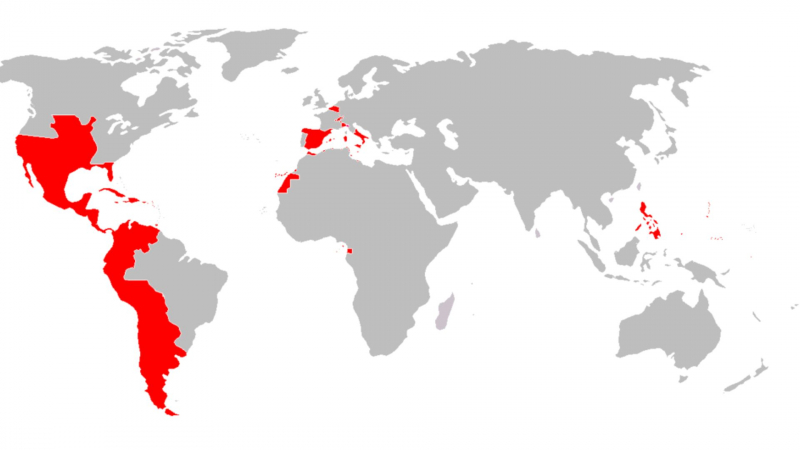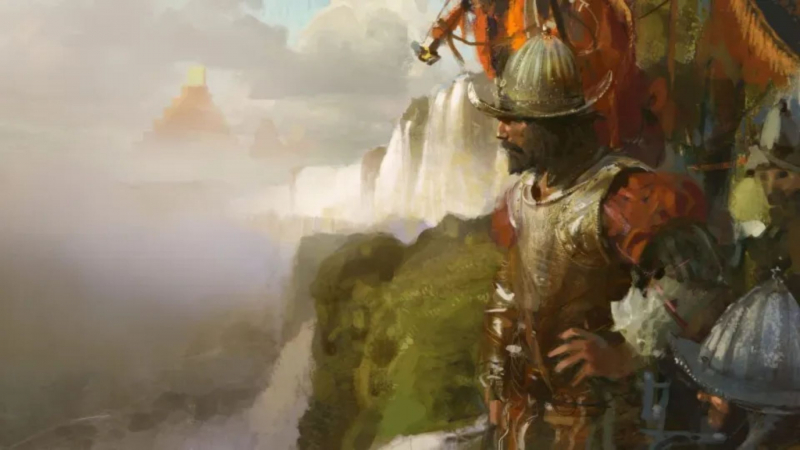Spanish Empire

Spanish Empire is the next name in the list of the largest empires of all time. The Spanish Empire, often known as the Hispanic Monarchy or the Catholic Monarchy, was a colonial hegemony ruled by Spain and its forerunner nations from 1492 and 1976. One of the biggest empires in history, it co-founded the European Age of Discovery with the Portuguese and attained a truly global scale, ruling over major areas of the Americas, regions of Western Europe, Africa, and a number of islands in Oceania and Asia. In the early modern era, it was one of the most powerful empires, earning the nickname "the empire on which the sun never sets," and it reached its height of dominance in the 18th century.
The dynastic union of Isabella I of Castile and Ferdinand II of Aragon, known as the Catholic Monarchs, in 1469, which started political, religious, and social cohesiveness but not political unity, was a significant factor in the building of Spain's empire. Castile grew to be the most powerful kingdom in Iberia as a result of its control over the American colonies. The Spanish Bourbon monarchs raised the empire's income from the Indies and brought it under stronger crown control, while the Spanish Habsburgs (1516–1700) further defined the empire's organizational structure. The papal grant of patronage rights, which gave the crown control in the religious sector, increased its dominance in the Indies.
When its colonies in the Americas started wagging their own wars of independence in the early 19th century, Spain suffered its biggest territorial losses. By 1900, Spain only had its African possessions left after losing its colonies in the Caribbean and Pacific. Spanish is the primary language, Catholicism is the predominant religion, and political traditions of representative government can be traced back to the Spanish Constitution of 1812. These are all remnants of Spanish America's ties with Iberia.











